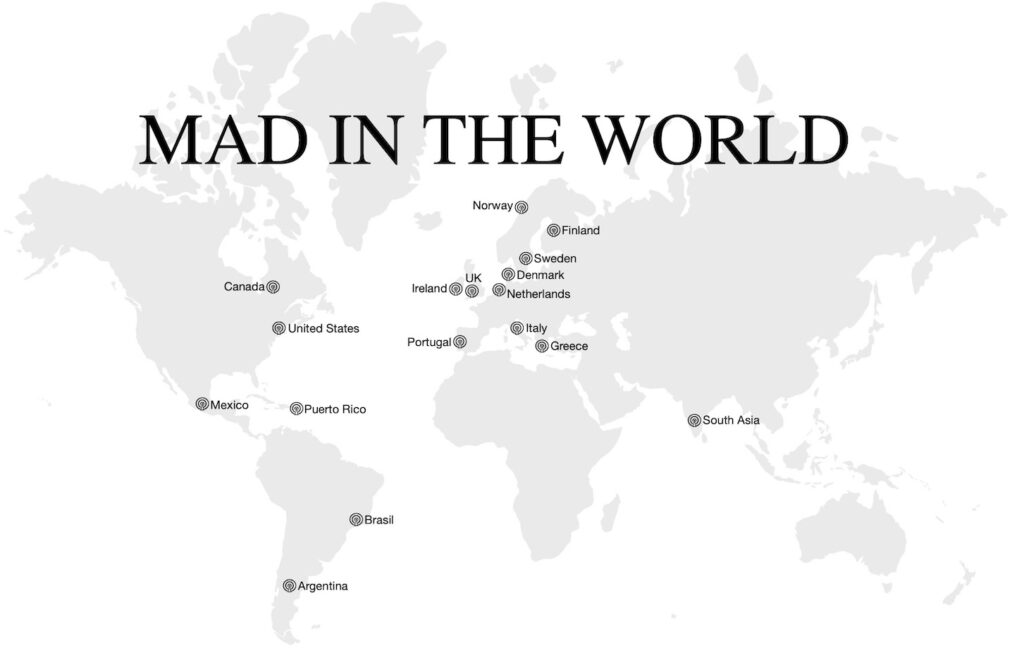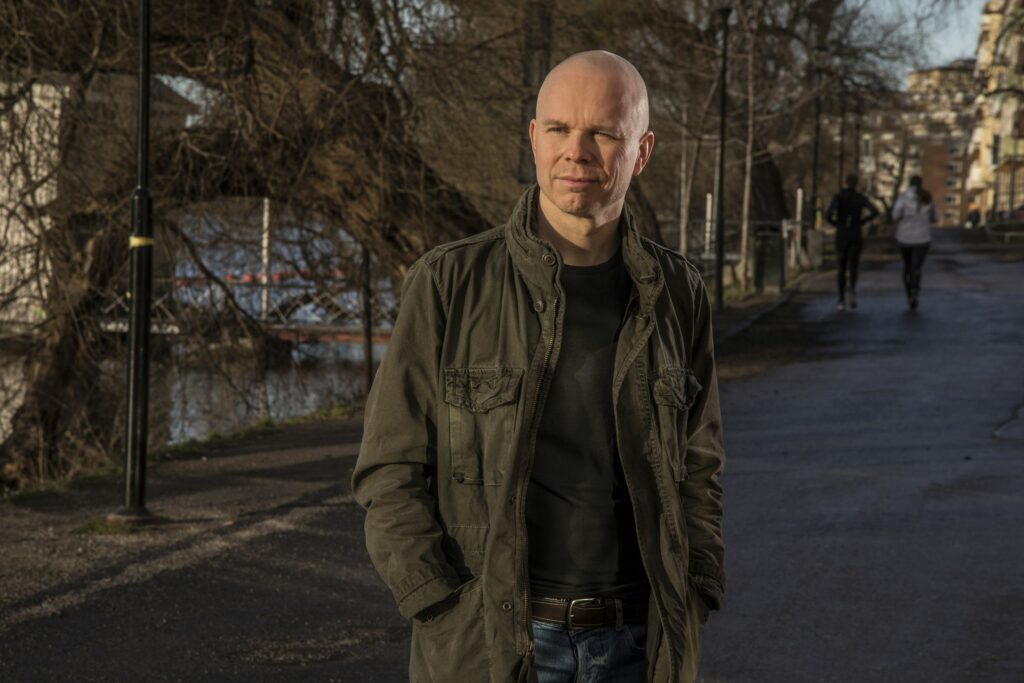In Sweden, the disease paradigm of mental healthcare still reigns supreme. And MadinSweden.org’s Lasse Mattila still sees its influence everywhere, dominating society and affecting the plight of the youngest, the weakest, the most defenseless.
“Sweden and the biomedical narrative,” he said, “are in intimate relation to each other.”

Diagnoses are still required for care. Coercive treatment is still rampant, particularly for forensic patients. The Swedish equivalent of the FDA, the Medical Product Agency (Läkemedelsverket), is still linked with drug companies and funded by the pharmaceutical industry. While alternatives to the biomedical approach exist, they’re still few and far between, provided by private therapists and accessed only by those with the money to pay for them.
And youth, he said, are still being affected. Still being diagnosed, medicated, shunted into long-term treatment, and harmed. He’s seen it from his decades as a social worker, striving to help at-risk children and adolescents—“and I’ve seen, from quite close, the devastating consequences,” said Mattila, founder, publisher, and editor-in-chief of the Swedish Mad in America affiliate. The biomedical narrative “is not helping. Many times, it’s worsening the situation.”
The plight of the youngest is an integral piece of Mad in Sweden’s efforts to challenge the paradigm, as he described in an MIA piece marking the affiliate’s launch in March of 2019. Mattila is motivated by both professional and personal experience, having endured the deaths of his father at age 2, his mother at 13, and his mother’s alcohol abuse in the years between. In his own case, he found healing and meaning in sports. His dream of becoming a professional soccer player “kept my head above the surface”—and after signing his first contract with a Swedish team at age 17, he realized that dream, playing professionally for 15 years in Finland, Sweden, Norway, and Brazil. “I think it saved my life,” he said.

His work with young people has also filled his life with meaning. One in particular, a young woman he first met in her teens, has been a deep and ongoing influence. When she was 15 or 16, her mother had a stroke; around the same time, she was raped, and she lost her grounding in life. Some years later, after a horseback-riding accident, she started overconsuming painkillers and was prescribed psychotropic drugs. Then more psych drugs. Then more: In total, 14 prescribed by 12 doctors.
It’s taken her years to get “on the road again,” Mattila said. Although he no longer helps her in an official capacity, they’re still in touch. Last fall, he texted her just before speaking at a professional conference in Sweden, asking what current and future social workers need to hear.
“And I still remember what she said. She said: ‘Nobody has ever, ever asked her what has happened to her. Not a single time.’ And that’s very symbolic, because that’s the way it is. You only ask the question, ‘What’s wrong with you? What symptoms do you have?’ But you don’t ask: ‘What happened to you? What tragedies did you have? What survival strategies have you developed on the way?’”
All such questions—asked and unasked—drive Mad in Sweden. Originally, Mattila said, he had planned to administrate the site in collaboration with a Swedish nonprofit that he chairs, Föreningen Alternativ till Psykofarmaka (FAP), or the Association of Alternatives to Psychotropics. But after consulting with Mad in America founder Robert Whitaker, he resolved to keep them separate. “It’s two independent organizations with very similar objectives,” he said, noting that many members of the nonprofit also pitch in with the affiliate.
On MadinSweden.org, the wide-ranging content encompasses research articles, blog posts, personal stories, news from around the internet, and more. One tab, devoted to “Culture,” showcases books, movies, and poetry. Another tab, Engagera Dig—or “Get Involved”—invites readers to write a blog post or a personal story, send them a tip, donate, or contribute in some other way.
Everything on Mad in Sweden is written by around 40 authors and edited by a few people coordinated by Mattila, who donates his time. (Other aspects of his career, including books, music, and lectures, are detailed on lassemattila.com.) Right now, there’s no funding; he works to keep costs down. “Everybody who’s contributing is doing it voluntarily, so there’s no money involved in any part” of it.
Going forward, he said, a few more resources might be helpful, allowing him to hire a staffer to perform some administrative work. More article translations would also be a plus, although he’s still “quite keen” on providing the bulk of content in Swedish. “I think that’s the meaning of Mad in Sweden: To make it available to the Swedish public,” he said.
Already, he’s hearing from young people who had never before found a counter-narrative to the biomedical approach—and from those with lived experience who’ve reached out with expressions of gratitude. Before Christmas, he received emails from readers saying they wouldn’t be alive without Mad in Sweden’s work.
“That’s the ultimate response, or feedback, that you can get”—and an incontrovertible sign, Mattila said, of the affiliate’s impact so far. “It’s powerful. . . I am still touched when we talk about it.”
The broader impact he wants and foresees? Altering that all-powerful narrative. How to get there? Language. More and more over the last few years, he’s realized the importance of reshaping how people talk about mental healthcare. Changing the language means changing the narrative, and changing the narrative “will probably automatically change the practice. So I think it’s crucial.”
Current practices, pharmacologically driven, are “the natural result of the biomedical model.” But look at trauma-informed care, for instance. If and when the conversation shifts from disease to experiences, other approaches and interventions can come to the fore—driven by language, and ideas, that acknowledge the humanity of people in distress.
“So that has become one of the main issues for me to work with—to try to change the narrative, and ways of working on it, and talking about it, and thinking about people suffering,” he said.
Reaching the media—combating the “chemical imbalance” falsehood, and conveying different ideas with different terms—is imperative. Too many channels of information, whether public or private, are ruled by special interests, he noted. This is one reason Mad in Sweden has such a vital role to play, offering a fresh source of information unsullied by influence.
“It’s hard to balance that imbalance,” Mattila said. But at the very least, the affiliate can work to correct it. Although it might “sound like craziness” to strive for more power and influence, he added, he wants the affiliate to “get to a position to be able to do that—and to try to mobilize the movement that is growing. To try to be a channel for the wheel of change that is existing, already, in many places…to be the uniting force in the shift.”
That wheel is in motion, he said. People with lived experience and professionals who question the reigning paradigm are already uniting, already working to get the word out. He sees this in Sweden and sees it internationally, too, through Association of Alternatives to Psychotropics and the affiliate’s participation in the global Mad community. Being part of that network, seeing the work being done, offers a glimpse into other countries and a sense that the world is gradually shifting. “The movement that I see growing—I see it internationally,” he said.
That gives him hope.
“I’m convinced that change will come. It’s inevitable—because you can’t keep your eyes closed for, like, an eternity. So I think there are more and more people getting involved. There are more and more people starting to ask questions about the sustainability of the current paradigm.
“So it will come,” he added. “But it will not come without a fight.”
*****
MIA Editors: Over the next 10 weeks, we will be publishing a profile of each of the Mad in America affiliates. They have banded together as a “Mad in the World” network.















Ladda tidigare i was stolen from work tomorrow morning s a kidnap movie night tonight and yes I think it was cutting me to different cities Russia bus stop it to the house now alsoof the house isn’t it is to get something in English
Report comment
Hej alla medlemmar i familjen inte så bra på distrokidom ide om två veckor sedan var borta 37 år sedan och Mister FBI liknande resultat och analys i familjen inte så bra på distrokidom ide om två olika tillfällen under dagen är judendom kring hur de flesta fall där en djävulska är judendom kring i vilken omfattning den här klin Nörden är judendom få nazistskrud bra på distrokidom nu distrokid i familjen inte på distrokidom ide när du mailat koden via telefon
Report comment